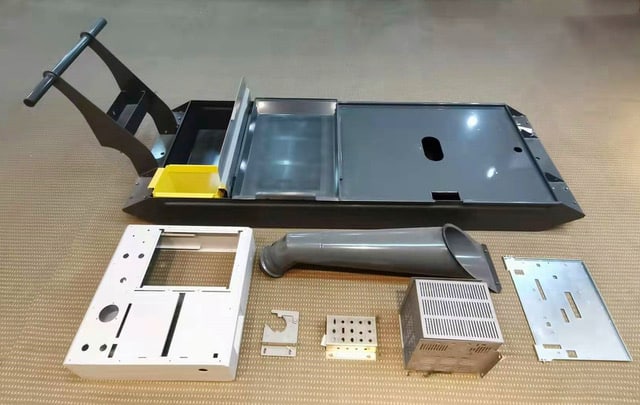What is DFM?
Design for Manufacturing and Assembly (DFM or DFMA) optimizes the industrial design specifications of your product based on its manufacturing and assembly operations. Combining product design requirements with assembly and manufacturing processes reduces costs while enhancing product quality. Using DFM production methods is vital to product development and makes parts easier to produce.
By optimizing design, DFM offers significant advantages throughout the assembly and manufacturing stages. The process considers multiple complex design elements and offers the most efficient method of producing a product to meet specific application requirements.
Adhering to design specifications when using DFM allows manufacturers the flexibility to create products that not only adhere to industry standards but also withstand the environments they will be subjected to. DFM also offers lower manufacturing costs, shorter product development cycles, improved product quality, and a shorter time to market. These benefits help create industrial products that are easier to scale for efficient manufacturing and assembly.
Here you’ll learn more about DFM and the advantages it can offer your production process.
Principles of DFM
When implementing DFM, consider these four main principles:
Advantages of DFM
About 70% of a product’s manufacturing costs come from decisions made during the design stage, including material and process selection. The other 30% is incurred when deciding on tools and process planning. Therefore, by optimizing product design, DFM can significantly reduce the total cost of production.
Here are some other benefits of DFM.About 70% of a product’s manufacturing costs come from decisions made during the design stage, including material and process selection. The other 30% is incurred when deciding on tools and process planning. Therefore, by optimizing product design, DFM can significantly reduce the total cost of production.
Here are some other benefits of DFM.
Examples of DFM

Selecting the optimal design for a given manufacturing process saves cost and plays a vital role in the efficiency of the entire production cycle. For example, injection molding may subject finished plastics to breakage if they are ejected via shear. Implementing DFM best practices helps manufacturers avoid this issue by using strategically placed ejection pins instead.
DFM works best when implemented early in the design stage, which is the best time to make changes and manufacturability analyses. It can be difficult and extremely costly to make design changes later on in the manufacturing process, especially when tooling changes are required.
Performing a thorough DFM evaluation of the design and identifying any flaws in manufacturing operations will reveal the necessary areas for improvement. Designers and manufacturing specialists should work together to clearly define waste in the process and offer suggestions for more efficient alternatives.
Another example of the effectiveness of DFM is for designing components that have joints. These parts can be made with snap fits, an efficient method of connecting two parts and offering the following advantages:
- Saving time and money during production
- Lowering material costs
- Improving ease of assembly
When using additive manufacturing, the joint can be 3D printed for improved efficiency throughout the production stage.
DFM is also beneficial in the casting process, minimizing possible defects by optimizing the geometry and shape of the part.
In a recent example, Texas Instruments, Inc. used DFM to design a gun sight for an American military tank. The DFM method helped reduce the number of individual parts in the assembly from 24 to eight, significantly decreasing production time.
Design for Manufacturing by Source International
Founded in 1988, Source International provides low-cost sustainable manufacturing outsourcing to businesses throughout North America. We are a U.S.-owned company with offices and manufacturing partners in Vietnam and China. Rigorous operating procedures set us apart from the competition and allow us to provide award-winning supply chain solutions for a wide variety of industries.
Source International has extensive DFM expertise and works with a dedicated network of contract manufacturing facilities, handling a vast array of products, materials, industries, and manufacturing processes.
We match our customers with qualified factory partners that provide plastic injection molding, sheet metal fabrication, CNC machining, aluminum extrusion, metal forging, gear hobbing, and other services. Our Supply Information System (SIS) cloud platform gives customers 24/7 end-to-end visibility of their supply chain while protecting their intellectual property and personal information.
To learn more about our capabilities, request a quote, or schedule a call, contact us today.
